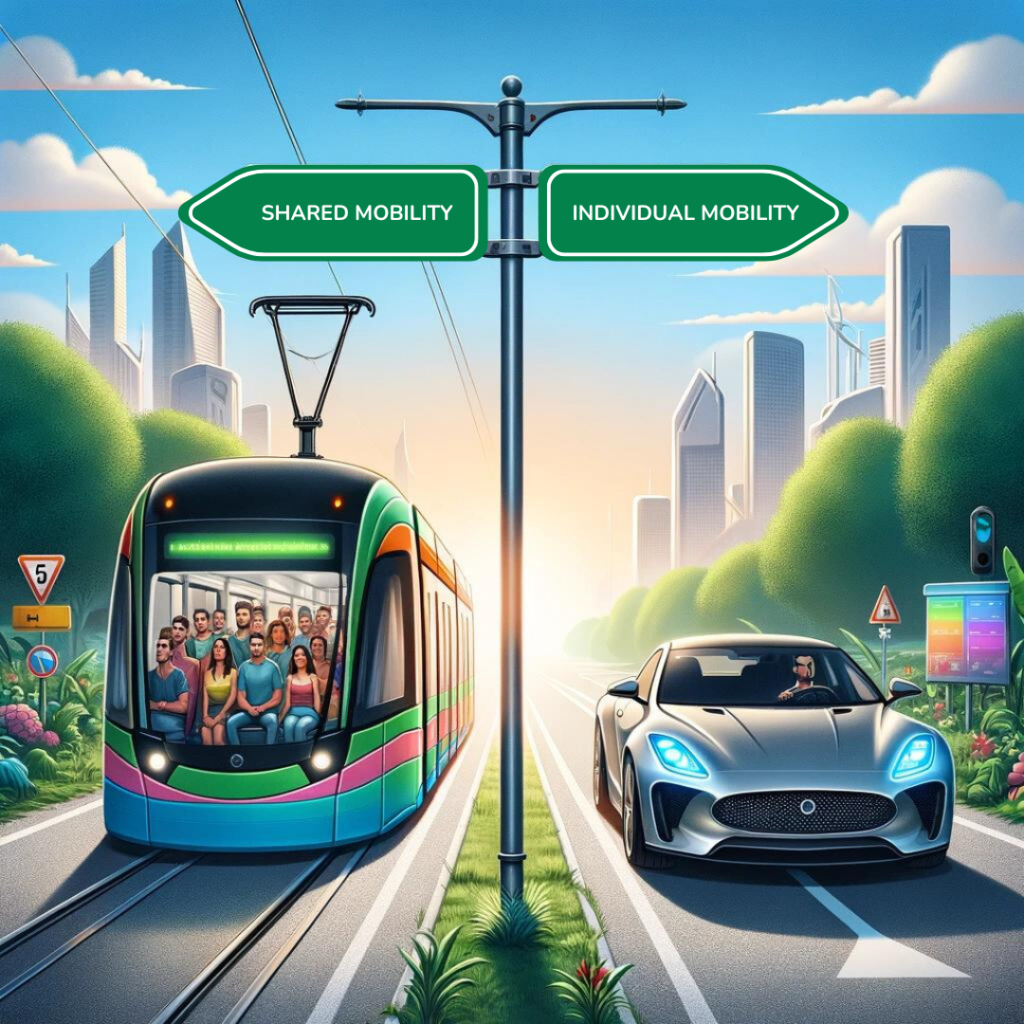Public Transport Vs Private Car (2nd Round): Towards Sustainable and Inclusive Mobility.
Urban mobility in France is marked by a constant dilemma: the collective benefits of public transport and the autonomy offered by the private car.
Our initial discussion on interurban transport now enriches with the exploration of the role of Corporate Social Responsibility (CSR), placing it as a logical extension of sustainable mobility.
In the face of ecological and social urgency, France is redefining its mobility with an investment of 10 billion euros in rail and celebrating the success of carpooling, which saved more than a million tonnes of CO2 in 2023. Aiming to reduce reliance on private cars; combating congestion and promoting inclusive and sustainable mobility, we highlight greener and more accessible alternatives for everyone.
In this quest for environmentally respectful and socially responsible mobility, organizations are gradually orienting their policies towards practices of enduring mobility. This approach, decidedly focused on inclusion, faces significant challenges such as decarbonization, social inclusion, and the promotion of a culture of sharing and intermodality.
What should we focus our efforts on? In this quest for transformation, we must prioritize our actions:
1. Accessibility: The Road to Inclusion :
Currently, 30% of French people with reduced mobility are excluded from the transport system, designed primarily for the majority. It is therefore essential to invest in public transport infrastructures and services adapted to everyone’s needs. It is with this in mind that the Ile-de-France Region has invested 124 million euros of regional budget for people with reduced mobility.
2. Electric Shift: Accelerating the Adoption of Green Vehicles :
Electromobility truly stands as a lever for sustainable mobility and is experiencing growing enthusiasm. In 2023 their sales soared by 60%, despite an insufficient ratio of charging stations, with 1 charging station for every 10 electric vehicles. It is crucial to support the rise of these vehicles in all environments, for sustainable and less polluting mobility on a global scale.
3. Share Your Mobility: Carpooling and Collective Solutions :
The rise of carpooling, marked by more than a million journeys by platforms in March 2023. This practice, having reduced CO2 emissions by more than a million tonnes in 2023 — equivalent to planting 50 million trees — demonstrates its effectiveness not only in reducing environmental impact but also in opening up access to transport.
4. Against the Scourges of Congestion and Pollution :
Traffic jams cost 5 billion euros annually, lost in productivity and represent 60.6% of total CO2 emissions. A real societal scourge, these figures underscore the crucial importance of adopting smarter and more sustainable mobility strategies.
5. The Railway: A Path to the Future :
With a commitment of 10 billion euros from the French government to the railway network, the goal is to strengthen interurban connections and stimulate the modal transfer from road transport to rail, anticipating a 25% increase in passenger traffic on high-speed lines by 2030.
These different axes form the foundation of a strategy aimed at reshaping the transport system. By focusing our efforts on these areas, we can not only win the « match » against individual transport but also work for a sustainable, inclusive, and beneficial mobility for everyone, now and for the long term.
So, where do you invest? The debate is open !
Impact Consultants, Paul de Rosen and Flavie Picart (with AI)

Sources:
- Public and Railway Transport Union. (n.d.). National Observatory of Sustainable Mobility. Retrieved from UTP.
- Ministry of Ecological Transition and Territorial Cohesion. (n.d.). Carpooling in France, its advantages and the regulation in force. Retrieved from Ministry of Ecological Transition and Territorial.
- Cohesion Ministry of Ecological Transition and Territorial Cohesion. (n.d.). Innovation Strategy and Future Investments in Transport. Retrieved from Ministry of Ecological Transition and Territorial Cohesion.
